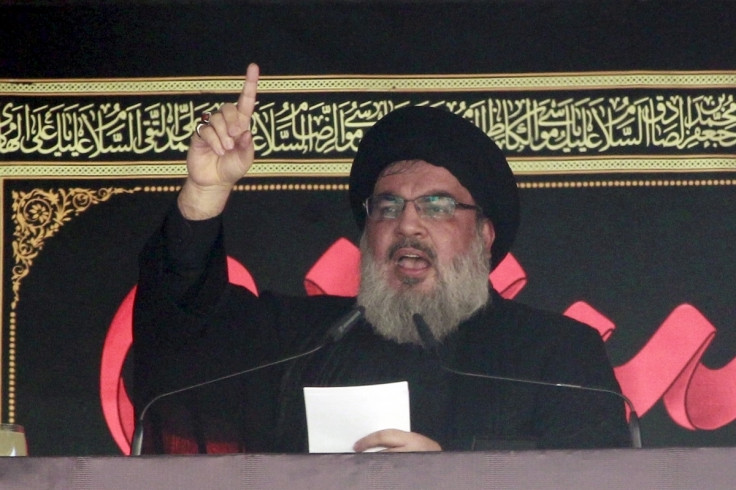Hezbollah's Nasrallah threatens nuclear-like attack on Israeli ammonia storage facility

Sayyed Hassan Nasrallah, the leader of the Lebanon-based Hezbollah organisation, has threatened to attack Israeli gas facilities which could result in the deaths of up to 800,000 people. The Shia militant leader said the group has the capability to strike the ammonia gas storage tanks in Haifa if the confrontation with Israel escalates.
"Israel knows Hezbollah has missiles and rockets that can strike anywhere in its territory," he said during a televised address in Beirut to mark the deaths of past leaders. "The inhabitants of Haifa are afraid of an attack... that will lead to the death of tens of thousands of inhabitants out of a population of some 800,000. What does this mean? It means that a few missiles on this ammonia site could have the result of a nuclear bomb."
He added that Hezbollah, which suffered serious setbacks after wading into the Syrian conflict, is boosting its militant capabilities to face fresh challenges emerging in the region. Hezbollah, backed by the Shia-inclined Iran, has entered the Syrian crisis in support of President Bashar al-Assad, who belongs to the minority Alawite, an offshoot of Shia Islam.
Within hours of Nasrallah's address, his threat resonated in Israel as Environment Protection Minister Avi Gabbai said the storage facility would be relocated. The ammonia tanks would be moved to the Negev desert within three years. The relocation of the tanks has been under consideration for several years as the residents run high risk of exposure to hazardous gases.
Haifa city officials in a mocking reply thanked Nasrallah for bringing up the matter yet again. In a statement, Haifa city authorities said: "We will continue to fight with all the means at our disposal for the safety and health of residents of the north. We do not think that the country should be run according to Nasrallah's haughty speeches, but we are happy that he is assisting in bringing this most important and worrying issue to the agenda, even if it comes from a frightened man who has for years been hiding in a bunker in Lebanon."
© Copyright IBTimes 2025. All rights reserved.






















